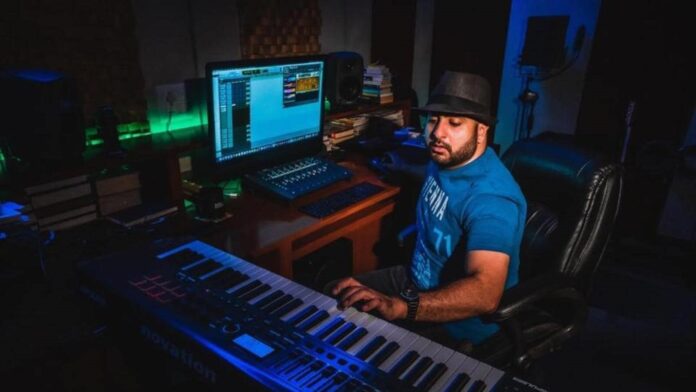Renowned singer-songwriter-producer Rohan Solomon is shedding light on the anxiety and instability that musicians face in the music industry. In an effort to initiate a dialogue and raise awareness about mental health, Solomon has recently released a new single called “Happy Place” to commemorate World Mental Health Month.
The music industry, despite its harmonious melodies and joyful rhythms, often comes with its own set of challenges and anxieties. Solomon recognizes the high levels of anxiety prevalent in the industry, particularly due to the emergence of artificial intelligence (AI), which threatens the livelihoods of musicians. “The industry is already so unstable for most people, and the introduction of AI only exacerbates this anxiety,” Solomon explains. “Many musicians live gig to gig, constantly under stress, which inevitably leads to anxiety. It’s crucial to address this issue and provide support for those who need it.”
Solomon’s single, “Happy Place,” is his most personal work to date, capturing the essence of his own experience with anxiety attacks. Despite the personal nature of the song, it carries a feel-good vibe, intended to uplift listeners and transport them to their own happy places. Solomon elaborates on the creative process behind the track, revealing that it was born out of a moment of self-soothing on the piano. “After the initial wave of the attack passed, I sat down at the piano and started playing to calm myself down. The intro piano riff kept repeating, and lyrics suddenly flowed into my head. I went with the flow, writing until the song was complete,” shares Solomon.
In addition to his music, Solomon acknowledges the importance of managing his own anxiety. Like anyone else, he experiences ups and downs in life, but he actively chooses to approach his mental health in a positive and healthy manner. “I incorporate yoga into my routine three times a week, meditate every morning, stay physically active by playing squash, and engage in therapy once a week. It’s the combination of these practices that has been truly beneficial for me,” he reveals.
While Solomon emphasizes the need to normalize conversations surrounding mental health, he acknowledges that there is still a lingering stigma associated with such discussions. Nevertheless, he finds hope in witnessing a shift in mentality, particularly in urban areas. “I am encouraged by the increasing acceptance, understanding, and empathy that people display when it comes to mental health,” concludes Solomon.
Rohan Solomon’s dedication to addressing the challenges faced by musicians in the wake of AI’s encroachment on their livelihoods is both timely and important. Through his music and personal experiences, he is amplifying the conversation around mental health, fostering a greater sense of understanding and support within the music industry and society as a whole.






















